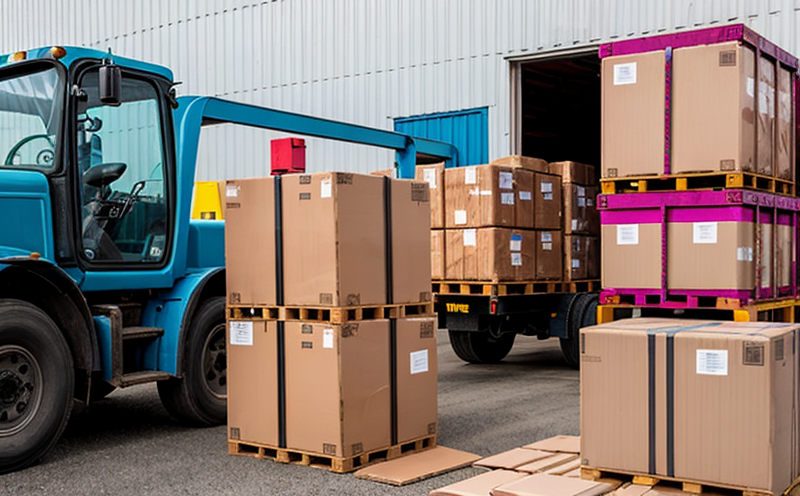Dangerous goods labeling inspection
Understanding dangerous goods is crucial in transportation and logistics to ensure safety and compliance with international regulations. Dangerous goods are materials or articles that have the potential to pose a significant risk to health, property, or the environment if not properly handled, stored, or transported. In many countries, including the United States and Europe, there are strict requirements for labeling such goods according to their specific classification.
The International Maritime Organization (IMO), the United Nations' specialized agency responsible for regulating shipping, sets out detailed guidelines in the International Maritime Dangerous Goods Code (IMDG). This code is widely used in maritime transport but also applies to other modes of transportation such as air, road, and rail.
The labeling system for dangerous goods typically includes:
- A diamond-shaped pictogram indicating the type of danger (explosive, flammable, toxic, etc.)
- Words or numbers that indicate the specific hazards associated with the material
- The UN number assigned to each hazardous substance
- The proper shipping name and other supplementary information such as packing group, flash point, and boiling point.
Accurate labeling is not just a legal requirement but also crucial for operational safety. Mislabeling can lead to significant risks during transportation and handling, including fires, explosions, poisonings, or environmental contamination. In this context, the role of laboratories in ensuring compliance with these regulations cannot be overstated.
A specialized laboratory providing dangerous goods labeling inspection services plays a critical role in verifying that all labels meet international standards. This involves:
- Sampling and testing the substance to determine its exact properties
- Comparing test results against the specified criteria outlined by regulatory bodies like the IMO and the United Nations Committee of Experts on Transport of Dangerous Goods (UN CEFACT)
- Ensuring that all labeling conforms to these standards
- Issuing a comprehensive report detailing the findings and any discrepancies.
The process ensures that goods are transported safely, reducing risks not only for carriers but also for recipients. This is particularly important given the increasing demand for international trade and the need to comply with stringent regulations.
In summary, dangerous goods labeling inspection is a vital service in ensuring both compliance with international standards and operational safety. It involves rigorous testing, detailed analysis, and meticulous documentation to ensure that all labels accurately reflect the nature of the materials being transported.
Benefits
The benefits of engaging a specialized laboratory for dangerous goods labeling inspection are numerous:
- Enhanced Safety: Proper labeling reduces the risk of accidents during transportation and handling, ensuring that all parties involved in the supply chain understand the hazards associated with each shipment.
- Avoidance of Legal Penalties: Non-compliance can lead to hefty fines, reputational damage, and legal action. A laboratory inspection service helps avoid such penalties by ensuring full adherence to regulations.
- Improved Reputation: Compliance with international standards reflects positively on a company’s operations and professionalism, enhancing its reputation in the market.
- Operational Efficiency: By identifying potential issues early through inspections, businesses can streamline their processes and avoid costly delays or rejections at ports of entry.
- Customer Trust: Accurate labeling builds trust with customers who rely on the integrity and safety of the goods they receive.
In summary, a laboratory providing this service ensures that all stakeholders in the transportation and logistics industry are protected from potential hazards while also enhancing overall operational efficiency and reputation.
Why Choose This Test
Selecting a reputable laboratory for dangerous goods labeling inspection is essential to ensure accurate and reliable results. Here’s why:
- Credibility: A well-established laboratory with recognized expertise in the field can provide confidence in the accuracy of test results.
- Comprehensive Expertise: Specialized laboratories have the knowledge, experience, and equipment necessary to conduct thorough inspections according to international standards.
- Regulatory Compliance: These labs stay up-to-date with the latest regulations and can help businesses ensure they are always compliant.
- Confidentiality: Reputable laboratories maintain strict confidentiality regarding their clients’ operations, ensuring that sensitive information remains secure.
- Customized Solutions: Many laboratories offer tailored services to meet specific client needs, providing flexibility and adaptability in service delivery.
In conclusion, choosing a reliable laboratory for dangerous goods labeling inspection can significantly enhance the safety and efficiency of your operations while ensuring compliance with international standards.
International Acceptance and Recognition
The importance of internationally recognized laboratories cannot be overstated in the context of dangerous goods labeling. Compliance with global regulations is crucial for businesses operating across borders, as it ensures that their products meet the same high standards wherever they are transported or stored.
One such example is the International Air Transport Association (IATA), which sets out guidelines for the transport of dangerous goods by air in its Dangerous Goods Regulations. These regulations are widely accepted and enforced across airlines, airports, and other stakeholders involved in air transportation.
Laboratories accredited to international standards such as ISO/IEC 17025 are recognized for their high-quality testing services. This accreditation ensures that the laboratory adheres to strict quality management systems and can provide reliable and accurate results. The ISO/IEC 17025 standard specifically requires laboratories to demonstrate technical competence, impartiality, and proficiency.
In the context of dangerous goods labeling inspection:
- Laboratories accredited under ISO/IEC 17025 are recognized by regulatory bodies worldwide, ensuring that their findings are accepted across different countries and regions.
- Accreditation also enhances client trust and credibility, as it indicates that the laboratory meets international standards for quality assurance.
By choosing a laboratory with such recognition, businesses can ensure that they meet the stringent requirements of multiple jurisdictions, thereby minimizing compliance risks and ensuring smooth operations across borders.





